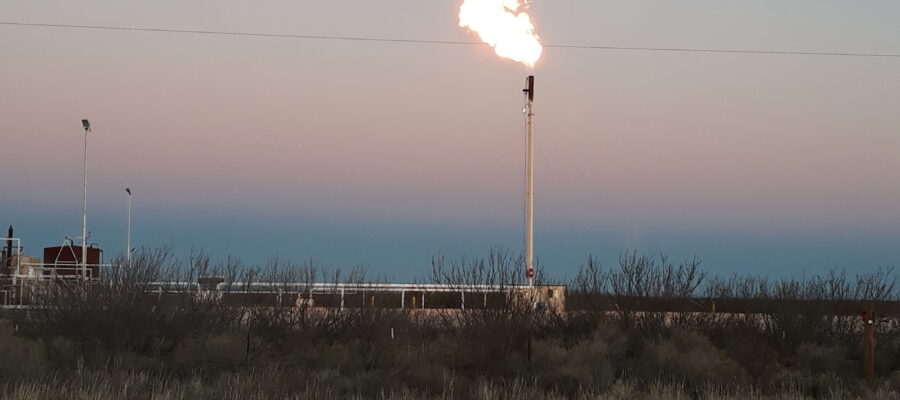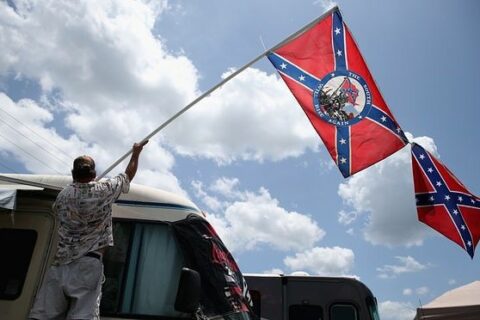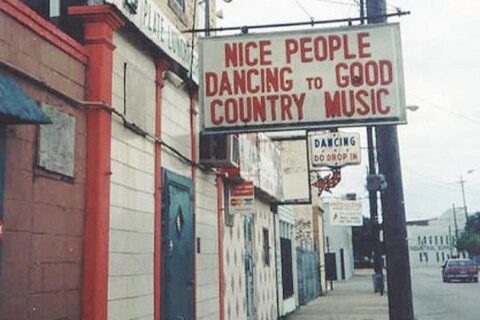I am, by no means, an expert on much of anything. I’m good with horses, cattle, goats, and 18-wheelers; I’m not an economist and I don’t know the first thing about how to run a country. I have, however, been around. I’ve worked and gone to college, therein having met swathes of disparate people who may or may not agree with me, and I’ve always been courteous and tried to help as many people as possible. It’s simply the way that I was brought up; to “have” is to owe to your neighbor and your community. And, to work is to provide for your family and contribute something to society.
Lately, it seems these principles have disappeared. The longer I stay in my pocket of Texas, the less familiar everything seems.
I have lived here my whole life, I was born here and I was raised a citizen of Heaven, first and foremost, and a Texan second. My family, in their youth, met here, wed here, and made their lives here. They came to find the “American dream” for themselves and they found it. When I was growing up, this place had promise; it sat conveniently on top of a dried sea bed with massive fossil fuel reserves. It was still a small town and the oil field hadn’t exploded yet.
People who worked did so for their families and helped each other prosper as a community; they went to work all week and attended church on Sunday. People cared enough to know each other and support their local businesses. That’s not to say we didn’t all indulge in many of the things our local Wal-Mart had to offer, but we weren’t neglecting our own people in order to enrich the large chain-stores. Our prominent restaurants were locally owned, and McDonald’s only existed to satisfy the occasional craving or student lunch release. It was not some small town utopia or heaven on earth by any means, but it was simply more connected. The oil field, as we know very well around here, is the dictator that decides how well our lives will go for a certain amount of time before everything comes down, crashing and burning.
Now, I was too young to understand the Iraq War, or how oil prices can determine the demand for the sacred substance we pull out of the ground, but I do remember the sudden decline in positive thinking in 2008, due to the recession that year. I was a teenager, and couldn’t care less about what any of it meant, but I noticed people start to disconnect. In these tough times, people were dividing, focused on self-preservation. Companies were laying people off and filing for bankruptcy, much like the current situation in 2020. Not that I blame people for acting out of desperation, but suddenly the attitudes of people became drier, more apathetic.
Fast forward to 2011 and the oil production from the Eagle Ford Shale and the Permian Basin soared. Things were looking better, but a few darker issues arose. From 2012-2014, an influx of people started coming to Texas from all over. A consequence of a boom right after a recession was that people were coming in with nothing, living out in the desert out of their car or in an RV. The state decided to allow some patches of land to be turned into RV parks, but the result was the gouging of prices for spaces. Landlords knew that once these new workers received their paychecks, they’d be making enough to afford hyperinflated rent, a trend which only increased as the years went by.
This sort of increase in rental cost came with an increase in property value as well. People were and still are selling half-acre lots for $150,000 or more. This led to my city giving the okay to build several housing projects in and around it. Cheap homes were built and sold at reasonable prices, but at the cost of expanding city limits and creating more divisions. Another problem that arose was a lack of a workforce in other industries. Even by raising the hourly pay to $14, grocery stores and restaurants were still understaffed, and everyone wanted to work in the oil field. This caused further inflation in housing value and anyone that didn’t work in the oil fields was doomed to pay rent at a small, cheap apartment instead of buying a house.
With the increased prosperity, people who had never held so much money in their lives were bound to treat it irresponsibly. It’s a pattern I’ve observed every time there’s a period of growth and profit. People bought expensive cars and trucks and modified them, pouring money into assets and sometimes completely useless things. We got a few more chain restaurants that charge $20 a plate and people ate there liberally. I’m guilty of doing this as well, and I can say that it’s hard to resist. Having money to spend gives a false sense of security; no one was prepared for the devastation that the sudden oil crash of 2015 brought.
People who had spent all their money on luxuries now had to sell them, sometimes at much lower prices than what they spent in total. Suddenly everyone was back to square one, as they were when they had come to harvest the rewards the oil industry gave. My own father was in debt, due to having taken out a few loans in order to start his own trucking business. In the end, he had to lease his trucks back to the company he’d worked for originally. This taught us something, however, that the work we were putting in and the money we were making was not eternal, and confirmed the teachings of Jesus Christ, that trusting in material wealth would only lead to ruin. Thankfully, the crash was relatively short-lived, and by 2016, we were back to making money. This time we were smarter, and we focused on paying our debts, which we managed in a relatively brief period. But, as I stated at the beginning, the social consequences still linger. Wealth comes and goes, but the more I watch our town grow, the more blemishes seem to appear.
The growing disconnect I saw in 2008 has only worsened. The post-recession oil boom saw people only working for themselves, and with wealth came a feeling of power. Nowhere was this more evident than with the Cuban population that has recently entered the Permian Basin. Personally, I generally have nothing against anyone, but being an oil field trucker, I’ve had a close-up view of this demographic for some time, as most of them take jobs as sand-haulers.
So, to set up an example, imagine you’ve lived your entire life in poverty, under an extreme communist regime. You’ve never driven a car and you’ve never had running water, the only electricity you have is limited and your TV only serves to broadcast your government’s propaganda. One day, you manage to leave your poor communist country and enter the United States. You drive a car for the first time in Miami and find a more or less decent job. Suddenly, you’ve got more wealth than you’ve ever had in your entire life. Then, one day, you decide to get your commercial driver’s license (which certain people with certain connections can give you without you ever taking a test) and hear about a vast number of trucking jobs available in Houston, Texas offering $1,000-1,500 a week. You move to Houston and take a job, only to hear about even higher paying trucking jobs in the desert 500 miles away. You set out to make your money, and at this point you consider yourself above people that live the way you used to. You work, you make your money, and for the first time, you feel invincible. You feel entitled to do your job as sloppily as possible and you don’t give a crap about the welfare of others on the road. You throw your trash everywhere and you don’t bother to move road hazards like the trailer wheel you just dumped in the middle of a curve. Your kin disproportionately cause more accidents than any other demographic driving a truck, but you don’t care. You’re better than them, because in the end, you’re better off than everyone else you knew, and if people don’t like you, then it’s because they’re prejudiced and it can’t possibly be anything you or people similar to you ever did.
This is the story of many Cuban immigrants who come to work in West Texas. But why? Aren’t people who come from a life of poverty more humble than people who don’t? Yet, that’s precisely the issue. They don’t know any better, and so they’ll do as benefits them in the moment. As far as the poor being humble, it’s simply not always true. Poverty and humility are not synonyms, and ignorance is the enemy of the latter. This is why Mexican immigrants, at least in my neck of the woods, have gained the favor of members of the white American working class. Because although many of them come from poverty and lack a formal education, many of them are raised with values such as charity, humility, etc. Most of them are Christians, and so they relate well to the largely Christian working class. Most Cubans are only raised knowing the value of survival. I don’t fault them for this, but it causes problems as far as the conservation of a community is concerned.
I think this pocket of Permian is doomed to continue to grow into a more metropolitan area, and so social values will continue to wane as the years go by. The lesson to be learned is that we should always put God first and our material wealth below spiritual wealth. We should teach our children to be humble, and to raise humble children of their own, regardless of how well off or how broke they may be. That is the only fix for the boom and bust cycles of our current state.
-By Western Dixie Anon

O I’m a good old rebel, now that’s just what I am. For this “fair land of freedom” I do not care at all. I’m glad I fit against it, I only wish we’d won, And I don’t want no pardon for anything I done.






Your not alone, this is happening nearly everywhere an not for the better. All these people coming in are ruining towns across the country, and while I’ve never lived in West Texas or Texas at all for that matter I feel very sympathetic to you because this has happened in my own neighborhood in the city I currently live in. So many people are moving here , and the older people who we’ve known well are getting older an new people from up north coming here to the apartments nearby an gentrifying our old southern style neighborhood with their ugly white millennial style houses (I’m sure you know the ones I’m talking about).
These new people while they may sometimes mean well, like you said they destroy the sense of community you once had an don’t care because they had nothing to do with it. I don’t have Cubans coming to my neighborhood, our biggest immigrants to mine lately are Yankee college aged kids who will walk down my neighborhood like they own it an won’t say hello to you if your outside when they they walk past your home without a care in the world because they’ve got their stupid little EarPods in with their trashy music blaring. Sometimes they’ll briefly look at you like your a serial killer if you give them a wave or even if they just see you an then continue walking on their merry way like you don’t exist before you get a chance to say anything . I just don’t understand how yanks can be so rude to their neighbors on the street they live an walk on, even though a number of them don’t even live on my street. Is that how they do it in Yankeeland? Yankees suck.
Great article, I hobo’d around as a young man from job to job, 20-30 years ago, my first taste of Texas was a town called Childress, I have never been treated so kindly in all of my travels west of the Mississippi, and I traveled a lot, everyone in that town was so courteous and considerate, it brought tears to my eyes, even at wal mart later down the road, the cashiers and customers were so gracious. I worked for 5 months helping build a RV campground out of Canton Texas then headed down to Matamoros, and to be honest, it was mostly Spanish/Mexicans who helped me get along south of San Antonio. Donna Texas was a scary ass place, it looked like hose Quervo fathered all of them Mexicans, but other than that, I know of the community you speak of, especially in the north and north west Texas.
Texas is giant, I traveled all of the paved roads of Alaska, but that is just pretty much just one road that makes a loop in the south of the state, Texas goes on forever!
God Bless you, and God Bless Texas.
All the Texans I’ve met are incredibly nice people now as they were when my great grandpa had to move near San Antonio for while to be a flight instructor in late World War 2 right when my grandma was born. They had rented a little house on a farm out there from some Mexicans, and they were so kind an generous to my great grand parents an helped care for my grandma when she was little as if she were their own. Even long after the war when they moved back home they still kept up with the family for years an even stopped to see them again one time when passing through.
While people are right in saying Texans are a tough people, we often forget that the people there also have a heart of gold an will always show kindness to their friends an visitors. Texas is a very important part of Dixie, we will not forget the Texan.
God Bless